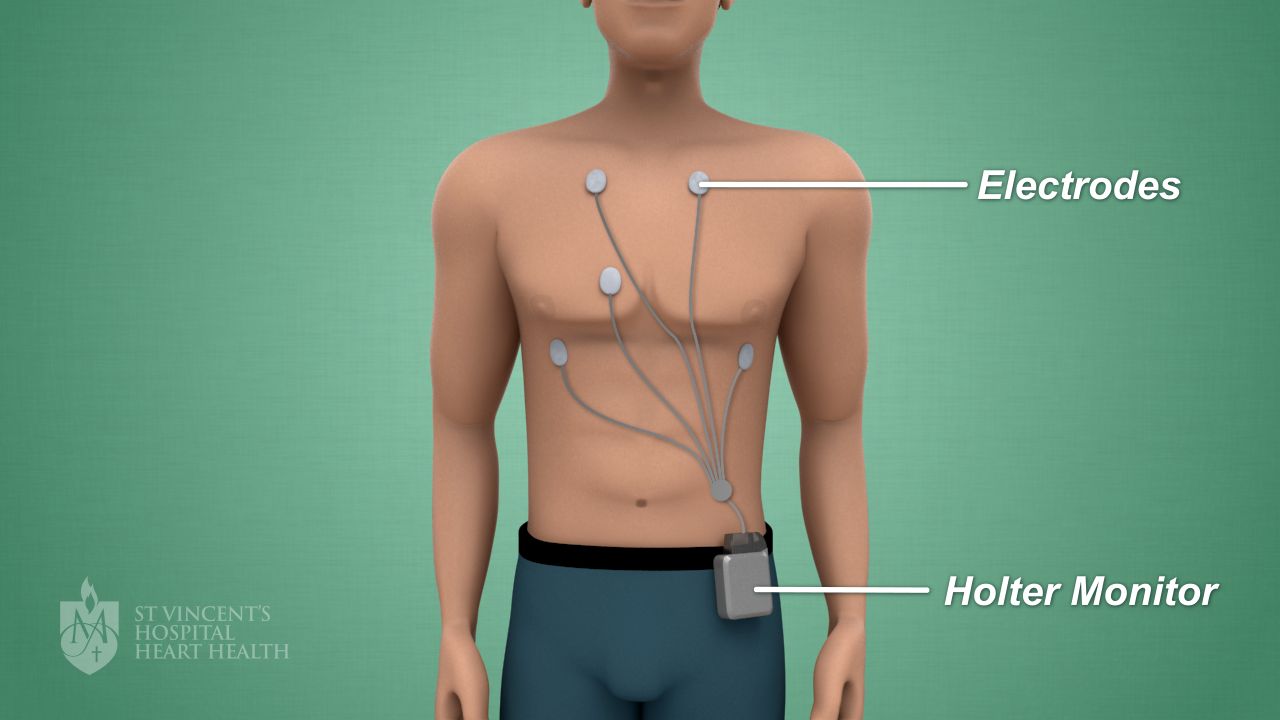Holter Monitor
A holter monitor is a device that records your heart beats.
What is a holter monitor?
Why do I need a holter monitor?
What are the risks of having a holter monitor?
How do I prepare for a holter monitor?
What happens during a holter monitor?
What happens after a holter monitor?
What is a holter monitor?
A holter monitor is a device that records your heart beats. It contains electrodes, wires and a small machine that attaches to your waistband.
The image below shows a holter monitor

 Why do I need a holter monitor?
Why do I need a holter monitor?
You may need a holter monitor if your doctor thinks there could be a problem with your heart rate or rhythm. You might have symptoms such as:
- Fainting
- Dizziness
- Shortness of breath
- Chest pain
- Irregular heartbeat (arrhythmia)
Even if you’ve had an ECG, you may still need to wear a holter monitor. ECGs only monitor your heartbeat for a short time - which isn’t always long enough to identify potential problem.
What are the risks of having a holter monitor?
Holter monitoring is a safe and painless test with no significant risks. Some people experience minor skin irritation from the sticky dots (electrodes) used to monitor the heartbeat.
How do I prepare for a holter monitor?
There’s not a lot you need to do to prepare - but you will need to shower. After your holter monitor has been fitted, you can’t get it wet or remove it. The hair on your chest may need to be shaved to help the electrodes stick to your skin.
What happens during a holter monitor?
The holter monitor test is a very straightforward procedure:
- Electrodes are stuck to your chest
- The electrodes are connected to the small holter machine device
- You’ll be shown how to attach the device to your clothes
While the device is fitted, you’ll need to:
- Wear it during your usual activities
- Keep it on at all times, even during sleep
- Never take it off
- Keep a diary of all your daily activities and the time you did them
- Record any specific symptoms you feel (dizziness, light-headedness, chest pain, shortness of breath)
What happens after a holter monitor?
After one or two days, you’ll return to your doctor’s office with your diary. Your doctor will remove the holter monitor, discuss your results and recommend an appropriate treatment plan to help you manage your symptoms moving forward.